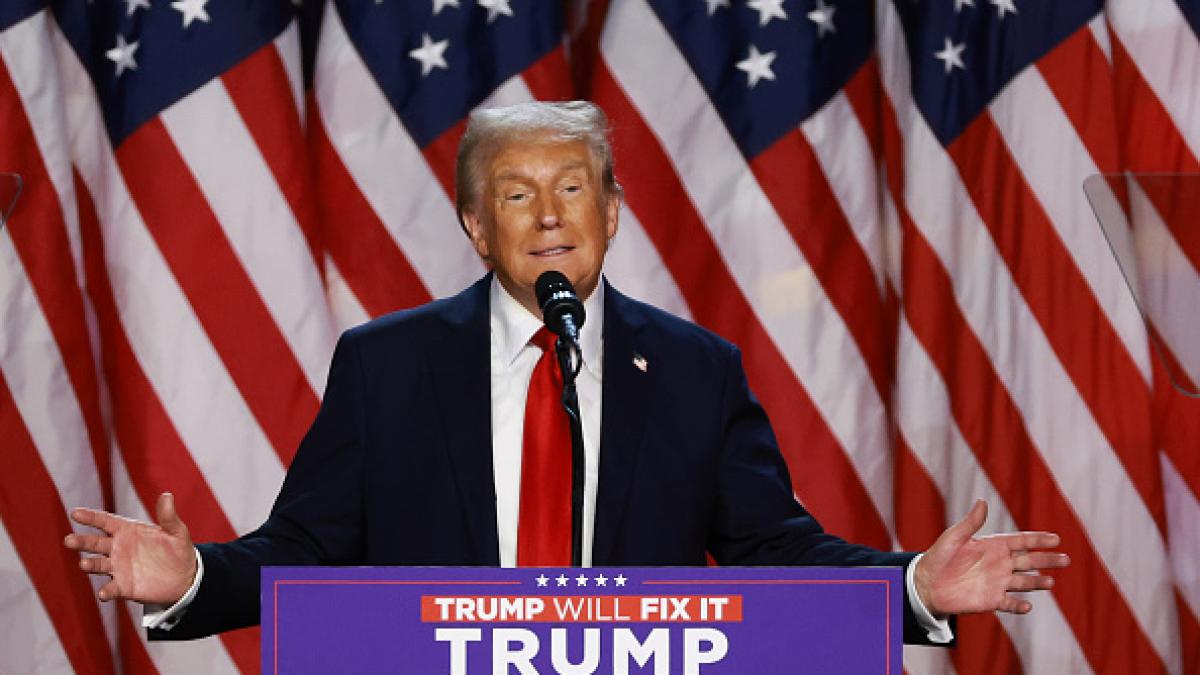While on the other side of the Atlantic the worst nightmares for the European dream were confirmed – Donald Trump returning to the White House -, in Brussels the appearance of the new commissioners who will up command Von der Leyen 2.0 takes place. . A commission that will focus its efforts on defense, technology and strategic autonomy, in an effort to prepare the European Union for the challenges of the new global context.
In one of the most turbulent geopolitical situations in recent decades, Trump’s undoubted election victory has dropped like a bucket of cold water for most European leaders. Trump’s promises and his record in his first term anticipate a return to aggressive protectionism, the US moving away from global commitments and a foreign policy based on trade balance. In this context, the EU is challenged to redefine its global role.
However, challenges present not only dangers, but also opportunities. The EU is in a unique position to consolidate its independence and influence key issues such as defence, climate change and trade relations. This new European era calls for renewed leadership, capable of leading the bloc in a more cohesive and strategic direction.
Trump is not the same as in 2016, and the EU is not the only Union that was still dealing at that time with the hard blow of Brexit. Trump’s unexpected victory eight years ago surprised European leaders. This time, however, Europe had been preparing for some time. In fact, there is a working group, “Trump’s Task Force”, which is specifically focused on examining situations related to possible trade wars, the future of the relationship across the Atlantic also through NATO and the war in Ukraine.
The first reactions of European leaders have been unity and firmness, insisting that they must take their own destiny. Now is the time to act decisively, focusing on three key priorities:
1. Strengthen strategic autonomy
The EU must accelerate its path towards a less dependent position. In Defense, this means investing in its own capabilities, preparing to manage regional and global crises without the help of the U.S. On a technological level, Europe has an urgent need to build an independent digital infrastructure, especially in critical areas such as artificial intelligence and 5G Networks, which will reduce the dependence on American technology. Likewise, the EU must consolidate a more coherent and proactive foreign policy, positioning itself as an independent actor on the world stage.
The challenge of this cohesive front that we need more than ever is that the EU is facing internal divisions that could complicate this leadership. The growing influence of pro-Trump and pro-Putin on the right in Europe and the weakening of the Franco-German axis are generating a wide view. Countries such as Poland, the Baltics and Spain could gain prominence, while others who challenge Brussels’ vision of integration will try to block a unified European response to Trump’s return to power.
2. Take a global leadership role
The withdrawal of the US from international forums opens up opportunities for the EU to play an important role in addressing global challenges, promoting peace and respect for international law, as well as strengthen multilateralism that promotes cooperation between countries. In short, our unique political identity.
In terms of economy, the EU could apply for global trade that includes the criteria of climate sustainability and social justice, contributing to the mitigation of inequality. This approach would position him as a leader in creating a world system that is more inclusive, more sustainable and respects human rights.
It’s about being at the forefront of the big global challenges. The Trump administration, known for its controversial policies on climate change, could make cooperation in this area more difficult, and Europe can lead the transition to sustainable economies through the European Green Deal. The EU also has the opportunity to position itself as a multilateral supporter, promoting human rights, conflict resolution and sustainable development in a world where tensions are increasing.
3. Diversify business relationships
Trump’s protectionism should force Europe to expand its trade agreements in regions such as Latin America, Africa and the Asia-Pacific. Agreements such as EU-Mercosur and the Global Gateway strategy would allow markets to diversify and reduce dependence on the US, creating more sustainable supply chains. This diversification is also in line with the aim of building a more stable and flexible European economy despite the global crisis.
Faced with the challenge of Trump’s return, the EU has the opportunity to reinvent itself and lead on the world stage. History shows that Europe grows stronger through crisis, and this will not be an exception. Now is the time to prepare for a world with less American presence and more European exposure.
The road will not be easy. It never was. But in this challenge lies the opportunity to build a stronger, more united and more influential Europe; able to face the challenges of the 21st century with an ambitious and shared vision.
Vicente Montávez Aguillaume is the former leader of the PSOE in Congress and the spokesperson for the Socialist Group in the EU Joint Commission.
2024-11-10 06:24:00
#Europe #age #Trump #Building #strength #crisis

